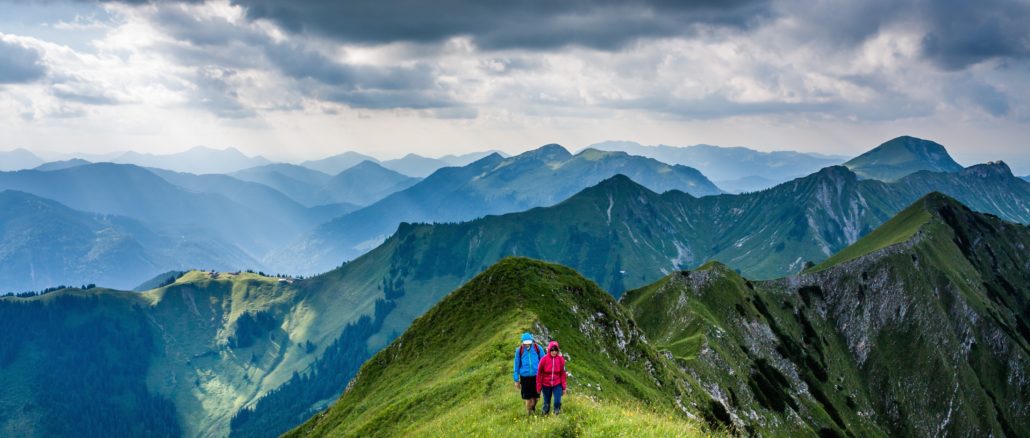
An occasional hike in the green outdoors is the perfect prescription for a healthy body and spirit. The research has shown that a mere 30 minutes among the wild greenery, surrounded by nothing but chirping birds and rustling leaves, boosts the immune system and calms the nerves with an effect that easily lasts for a week. These are some truly fascinating results that only go to show how intrinsic our connection to nature is. It’s no wonder then that a long hike through the woods can also help you achieve the coveted Zen state of mind. If you are interested to improve your meditative skills and improve your physical condition, here’s why hiking is such a potent way to mindfulness.
Go with the flow
Have you ever noticed how menial tasks tend to put you in a Zen mood? Washing the dishes, vacuuming the household and cleaning the interior elements with a wet mop put you in sync with your deeply rooted inner being that craves order, and as you see immediate results from cleaning your space, the thinking stops and your mind begins to rest. The same sort of thing happens when you go on a hike through the wild, especially if you have gone on a search for nothing more concrete than mindfulness.
The activity of walking through nature is mechanical at first – you are constantly watching your balance if the terrain is rugged and you are careful not to trip over. This is where the opportunity to be mindful opens up – the more you walk, the more opportunities to empty your thoughts will arise. At first, it will be hard to break the chain of thinking, and once you succeed it might not last for a long time.
Still, with practice, you will begin to go with the flow and become quite adept at hiking through rough terrain without overtly thinking about it. This is what being mindful is all about – your mind is empty of superfluous through, which puts you brain in the state of readiness to tackle any immediate obstacle without feeling overwrought.

Camp out for a mindful adventure
A simple and short hike in the woods has an incredible impact on your body in many ways, but several days in the wild goes a long way. If you could only take one weekend out of every month to venture into the wild and spend (at least) two days hiking through the familiar terrain, not too close to the city yet not that far from civilization, your ability to practice mindfulness would increase exponentially. Your spirit would be rejuvenated before you go back to tackle work and daily obligations.
Of course, in order to be appropriately prepared for such endeavor, you need top-quality camping gear as well as a solid supply of food and beverages. Preparation for such outings can take some time at first, but the more you do it, the more efficient you’ll get, and the time lost on gearing up becomes utterly insignificant. The benefit one’s mind reaps from camping in the wild outweighs the drawbacks by a significant margin.

Be aware of mind’s traps
Of course, even the skillful hikers that understand how mindfulness works tend to fall into mind’s regular traps. This is neither strange nor rare and nobody should feel guilty for it or less disciplined. Each human is unique and traps tend to follow their own set of rules. These are loops – the anxieties and thoughts we tend to fall into without noticing it. They are often related to problems we have trouble solving – family issues, work-related conundrums, relationship problems. Sometimes it is a mix of all three.
The key to a successful mindful hiking session is to understand that the typical life of a human is rife with problems and tragedies, both large and small, and to separate that from the pursuit of wellbeing in which you engage every time you go on a hike. It should be treated no differently than walking into a Buddhist temple, a church or even a gym. Once you walk through the first line of lush trees and embark on your hiking adventure, you have to forgive yourself in order to break away from the mind’s traps. This is your “time-out” zone, the place where you have the permission to rest while your muscles work overtime. It is the best possible way to rejuvenate yourself.
As the cobweb of concrete streets stretches outward, closely followed by the emergence of glass buildings and houses, the patches of invaluable lush greenery are getting smaller. It’s as if we are distancing ourselves from nature, and, subsequently, ourselves. In order to rediscover the inner balance and truly enjoy the bliss of mindfulness, one can practice a variety of disciplines within the confines of their home, but nothing quite beats the utter magnificence of the outdoors and the escape from the city verve it offers. Out there, surrounded by the eons old calm of nature, one can finally break free from the incessant streams of thoughts and, hiking through the woods, find the true mindful Zen.
Isabel William
SheSociety is a site for the women of Australia to share our stories, our experiences, shared learnings and opportunities to connect.

Leave a Reply